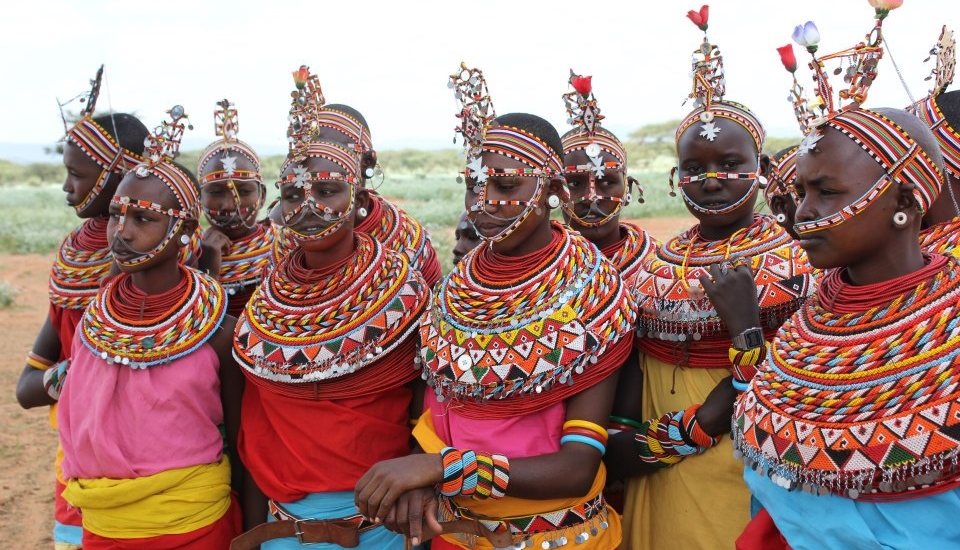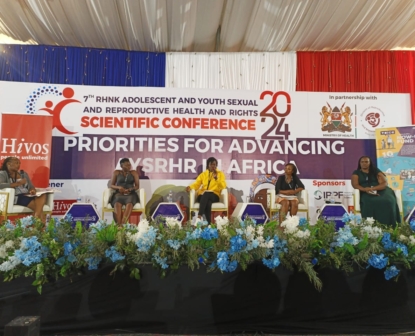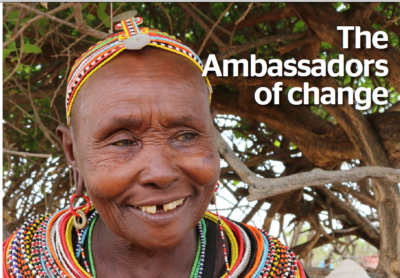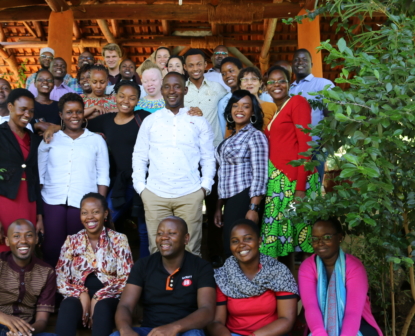Project
Usawa Dada
-
Amount Funded
160,382 EUROProject Duration
01 Aug 2017 - 31 Jul 2019 -
-
Lead organisation
-
Samburu Women Trust is an indigenous women-led organisation, registered as a Trust and non-profit and non-political institution in Kenya whose mission is to champion the rights of women and girls among pastoralists’ communities in Kenya. The organisation recognises that such challenges affect all women in the country, however the exclusion and human rights violations among indigenous communities in Kenya is even more pertinent. It is among these communities that the traditional role of women and girls in society is at lower strata when compared with men. This must be urgently addressed. The deep-rooted retrogressive cultural practices like early forced marriages, female genital mutilation, girl child beading, and spousal beatings are routinely carried out, despite recent constitutional, administrative, policy and legislative advancement for the promotion and protection of the rights of women and girls in Kenya.
-
Organisation
Samburu Women Trust is an indigenous women-led organisation, registered as a Trust and non-profit and non-political institution in Kenya whose mission is to champion the rights of women and girls among pastoralists’ communities in Kenya. The organisation recognises that such challenges affect all women in the country, however the exclusion and human rights violations among indigenous communities in Kenya is even more pertinent. It is among these communities that the traditional role of women and girls in society is at lower strata when compared with men. This must be urgently addressed. The deep-rooted retrogressive cultural practices like early forced marriages, female genital mutilation, girl child beading, and spousal beatings are routinely carried out, despite recent constitutional, administrative, policy and legislative advancement for the promotion and protection of the rights of women and girls in Kenya.
-
Project
Samburu Women Trust (SWT) is an indigenous women-led organisation whose mission is to champion the rights of women and girls among the pastoralists’ communities in Kenya. The organisation is concerned with addressing deep-rooted retrogressive cultural practices like early forced marriages, female genital mutilation, girl child beading, and spousal beatings which are routinely carried out, despite recent constitutional, administrative, policy and legislative advancement for the promotion and protection of the rights of women and girls in Kenya. Two key studies conducted in 2012 – A silent sacrifice – and a follow up in 2015 – The Unspoken vice in Samburu Community – provides concrete recommendation on how to address these challenges in which the proposed project is based upon.
The Usawa Dada project targets three counties where these practices are most predominant, namely Isiolo, Samburu, and Marsabit. The project expects that community perceptions change by encouraging more female participation in decision-making and eliminating practices that harm women and at the same time enhances the capacity of women to take up leadership positions in society. SWT’s work is informed by first hand experiences of the founders and lived experiences of fellow women and girls among the Samburu community.
The founders felt personally challenged to do something to bring to an end institutionalised violation of rights of women and girls among their pastoralist communities. The organisation positions itself as the champion of human rights for women and girls, facilitator for the amplification of the voices of women and girls, and supporter of victims and survivors of retrogressive cultural practices.
-
-
Samburu Women Trust (SWT) is an indigenous women-led organisation whose mission is to champion the rights of women and girls among the pastoralists’ communities in Kenya. The organisation is concerned with addressing deep-rooted retrogressive cultural practices like early forced marriages, female genital mutilation, girl child beading, and spousal beatings which are routinely carried out, despite recent constitutional, administrative, policy and legislative advancement for the promotion and protection of the rights of women and girls in Kenya. Two key studies conducted in 2012 – A silent sacrifice – and a follow up in 2015 – The Unspoken vice in Samburu Community – provides concrete recommendation on how to address these challenges in which the proposed project is based upon.
The Usawa Dada project targets three counties where these practices are most predominant, namely Isiolo, Samburu, and Marsabit. The project expects that community perceptions change by encouraging more female participation in decision-making and eliminating practices that harm women and at the same time enhances the capacity of women to take up leadership positions in society. SWT’s work is informed by first hand experiences of the founders and lived experiences of fellow women and girls among the Samburu community.
The founders felt personally challenged to do something to bring to an end institutionalised violation of rights of women and girls among their pastoralist communities. The organisation positions itself as the champion of human rights for women and girls, facilitator for the amplification of the voices of women and girls, and supporter of victims and survivors of retrogressive cultural practices.
-
“For a long time, the women could not stand in a meeting to say anything. A woman was required to hold a grass as she rose to speak to depict how low she is. Today if a woman is asked to speak, you confidently rise and do so on your feet. We are also now aware of the constitution and our rights in it. We know that our girls should be in school and not subjected to FGM. We have no stress of many things as before, and we can plan for our future development’. Mrs. Salante Lemburkash, Chairlady of Memirlosho cultural Women village
This story of Salante was the norm for other women in Samburu. The influencing project by Samburu Women’s Trust directly addressed the community needs and issues of concerns. In the overall project design, the activities seem to understand the underlying issues that other projects seem to have skirted, placing emphasis on the nuances in the community culture behind the low status of the indigenous women in the community.
A realisable change has been noted in relation to changed community perceptions to allow women participation in decision making process. Through stakeholders’ forums held during the project, it is evident that the community has gradually recognised the role of women and their importance in participation in decision making processes. This has gradually led to reduction in number of women and girls subjected to Harmful Traditional Practices (HTPs) such as forced marriages, teenage pregnancies, child beading and other related harmful practice.
During the project, SWT reported that the development of an anti-child beading policy is timely since the community is getting in to transition of an existing Morans (youth) age set who are graduating to junior elders and another age set of new Morans is upcoming in September 2019, these actually might raise an alarm of rising cases of child beading in the community as a result of an emerging new generation.
The leadership programme was designed and delivered in a multi-stakeholder approach involving political leaders, the clergy as well as teachers. As a result, members of these groups took part as facilitators of some of the SWT forums and meetings including the mentorship programmes. The overall result of the activity is that the voice of women is today more respected by the elders. The empowerment model of the initiative enabled the women taking part in the project to learn and appreciate their rights. Many of them recalled that the women are now elect leaders of their own choice without coercion.
-
News






